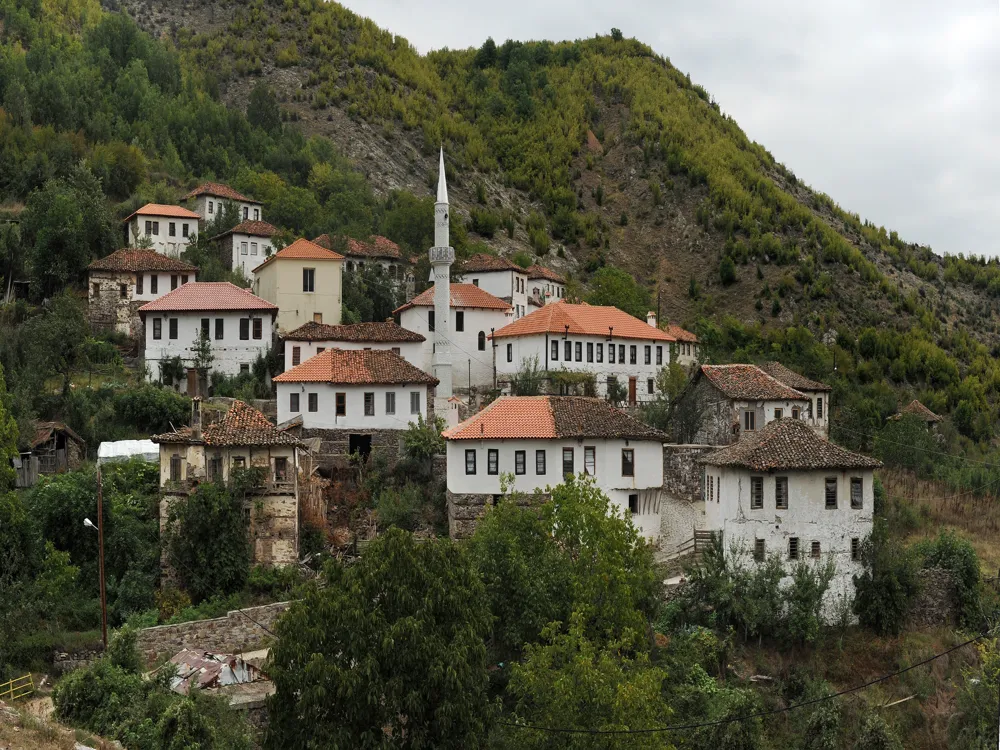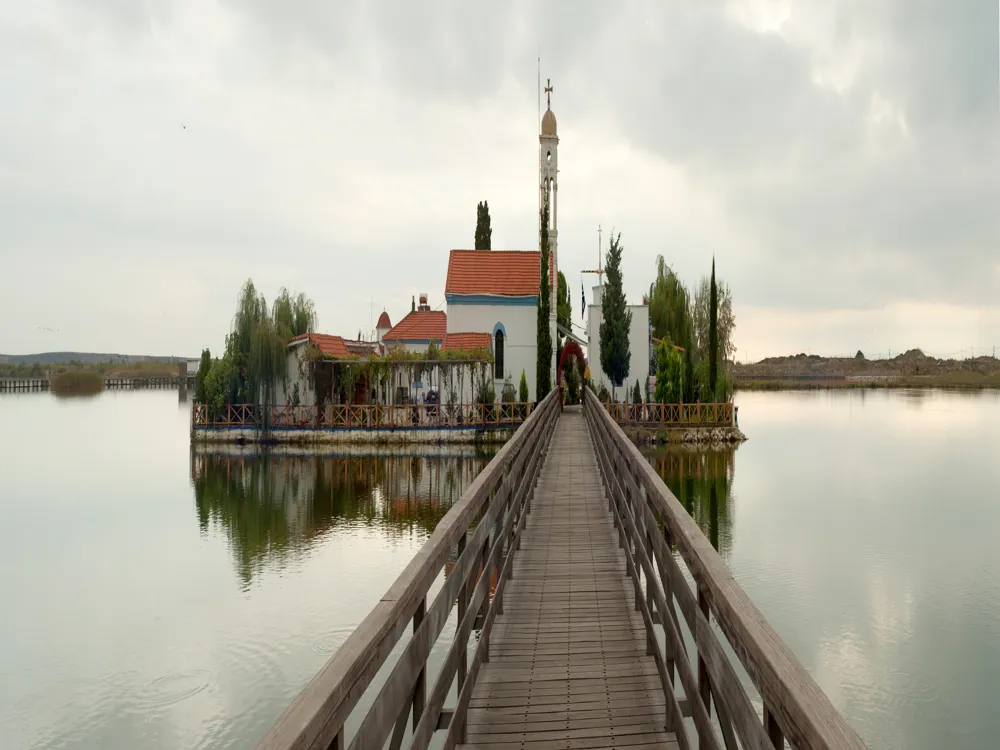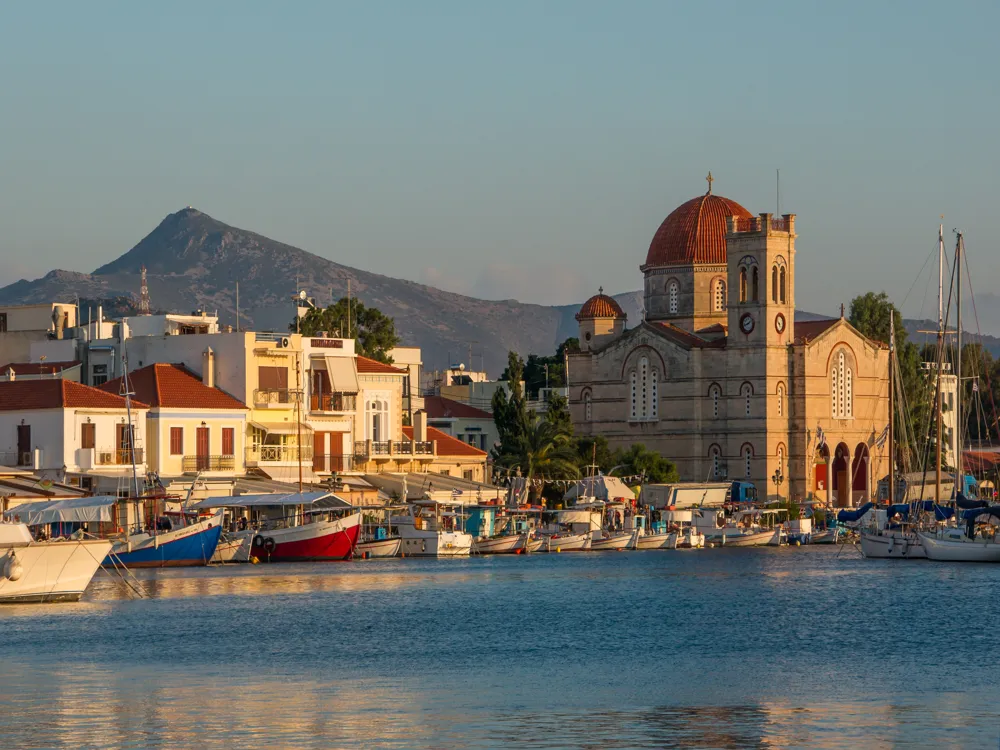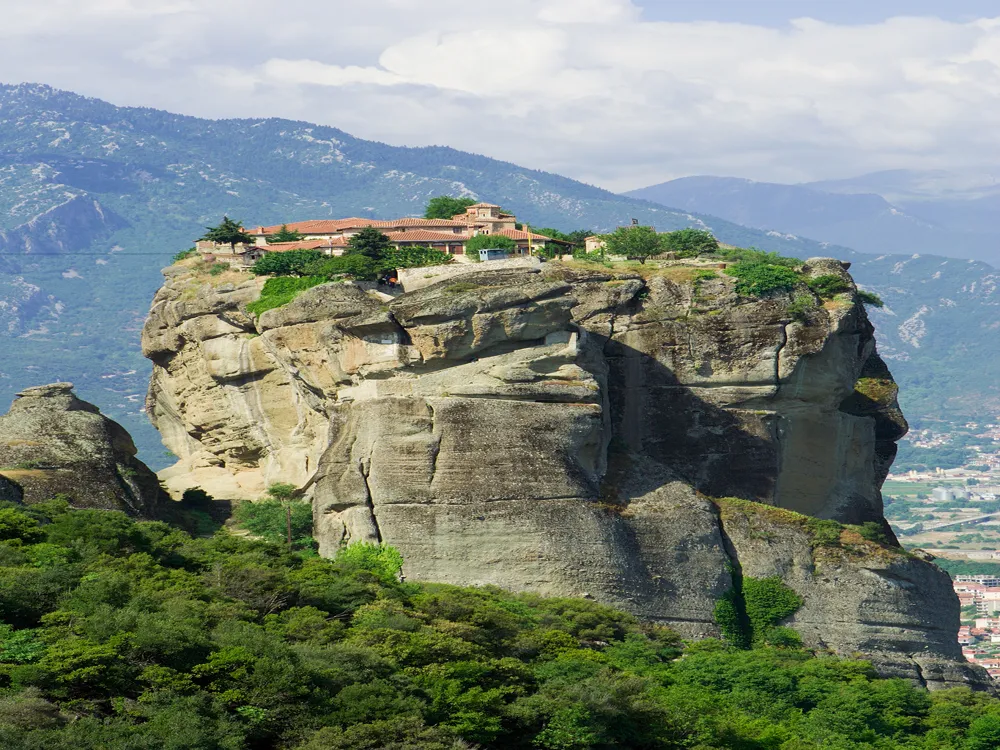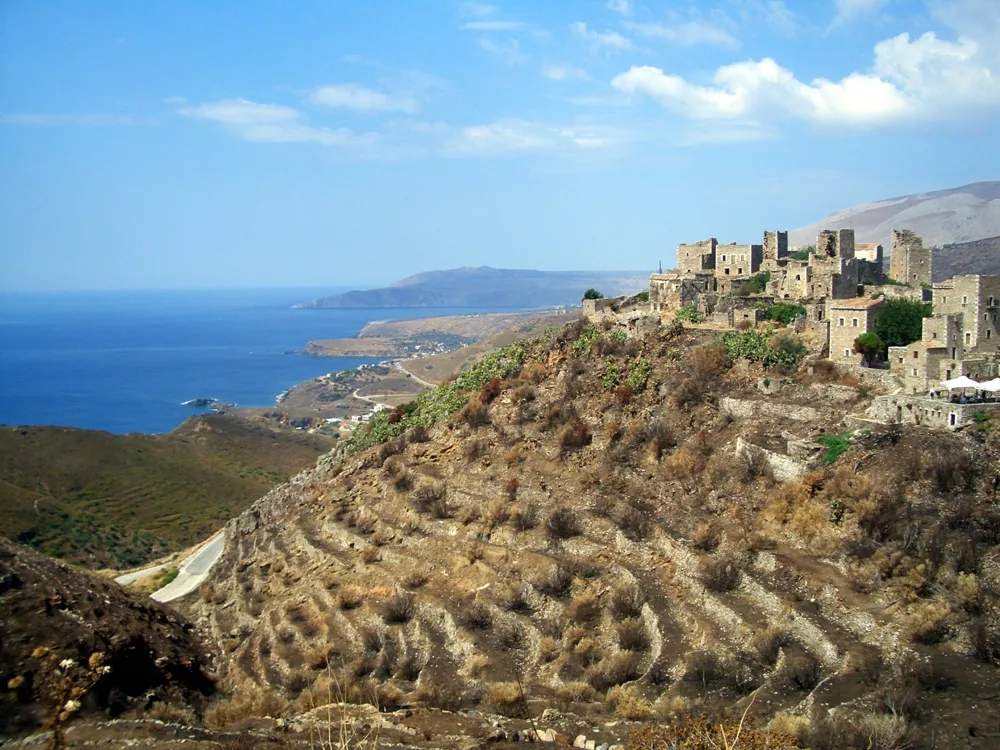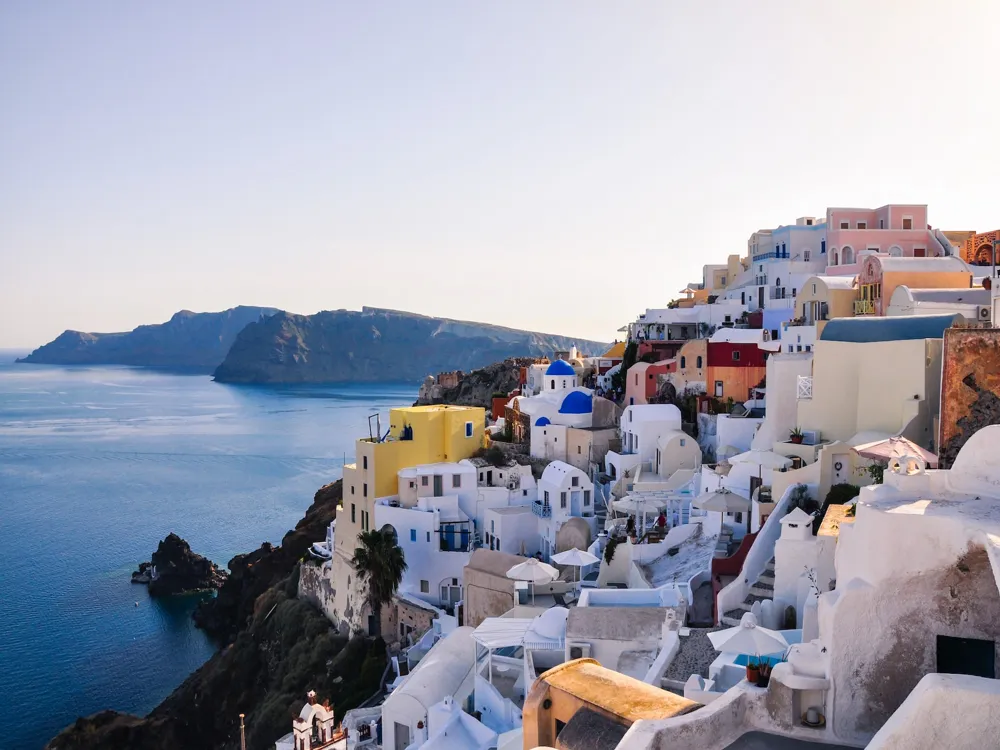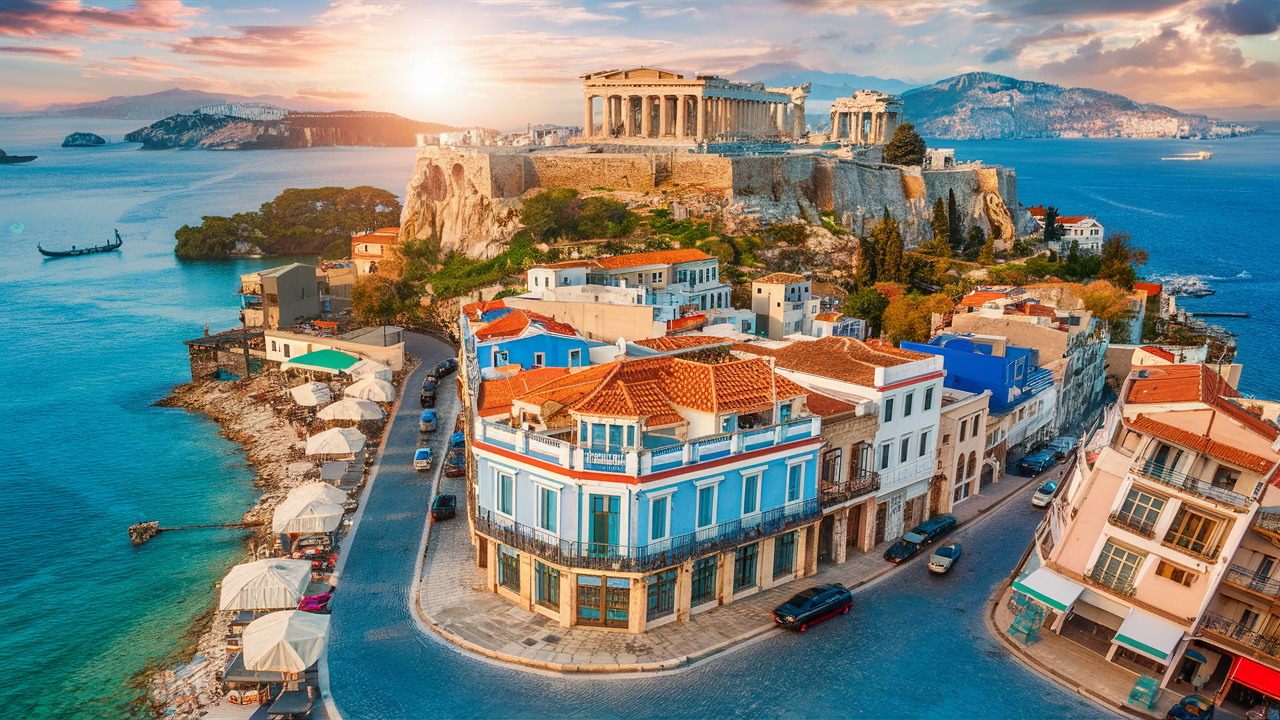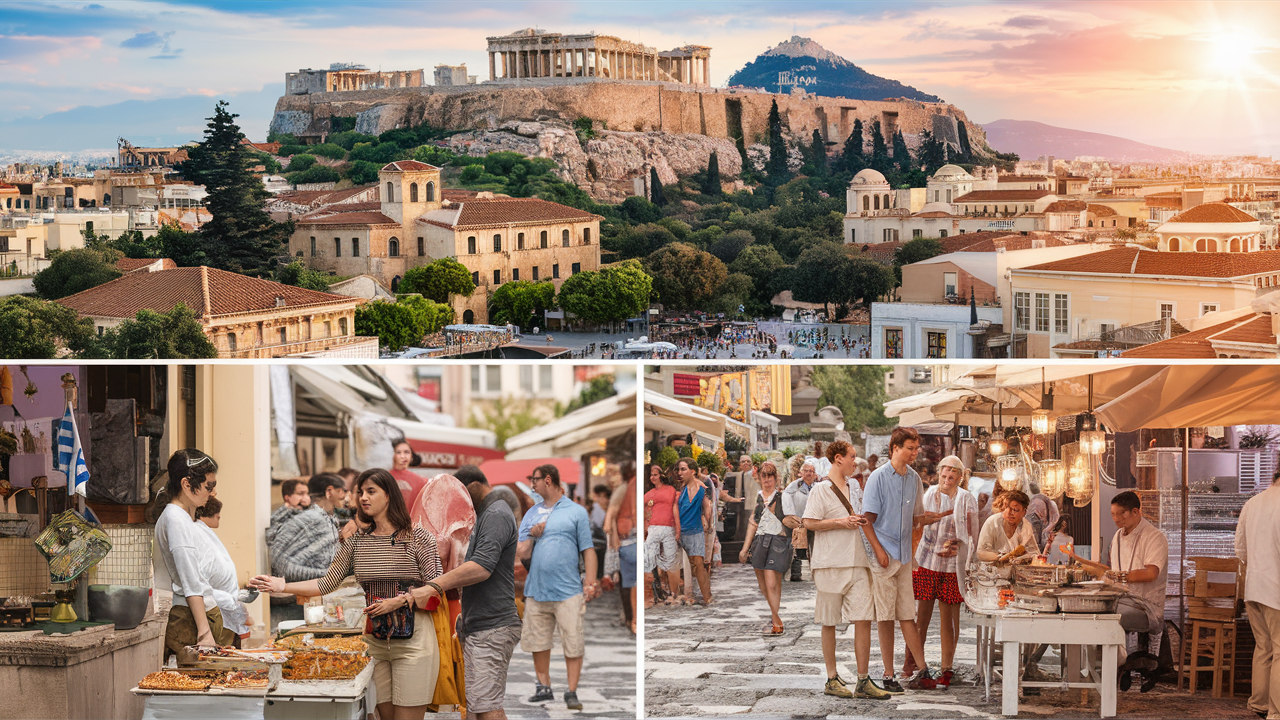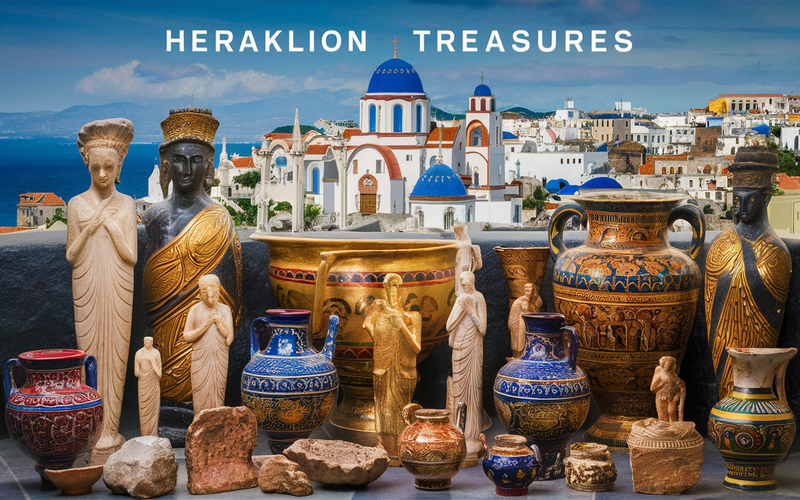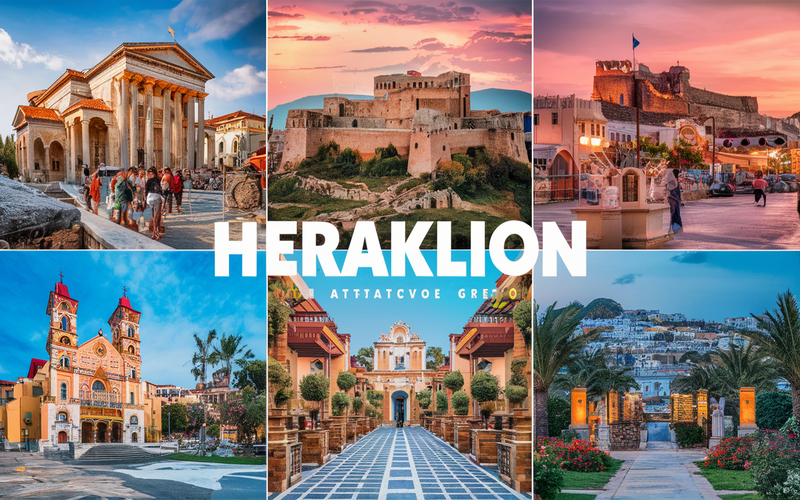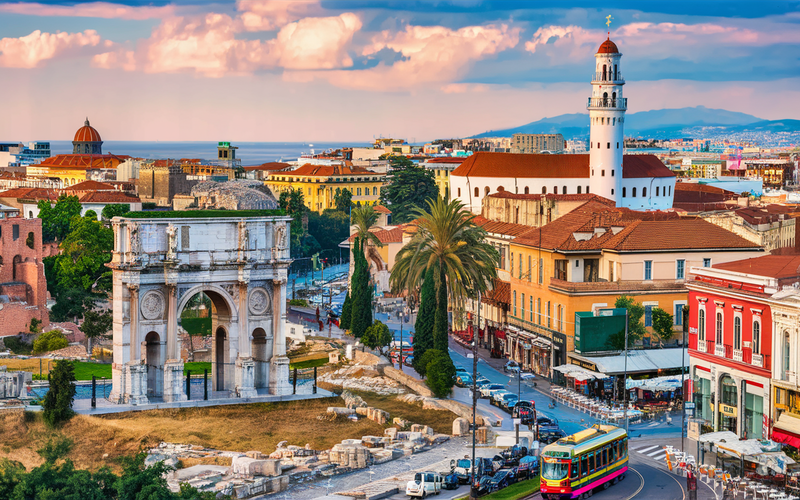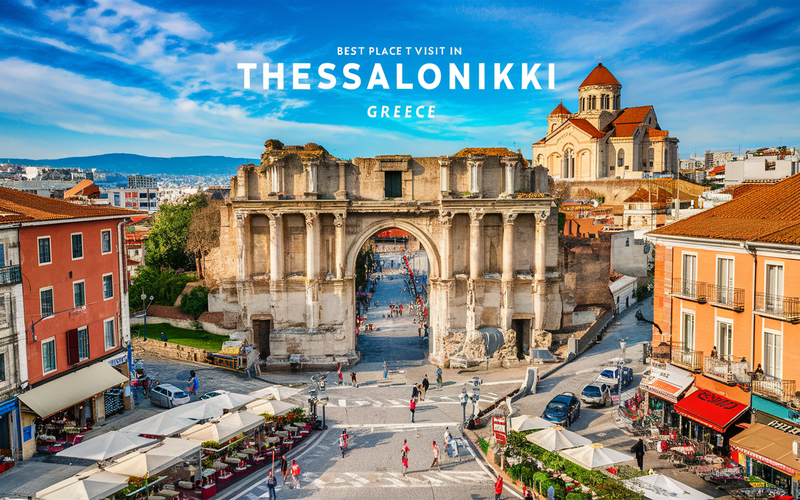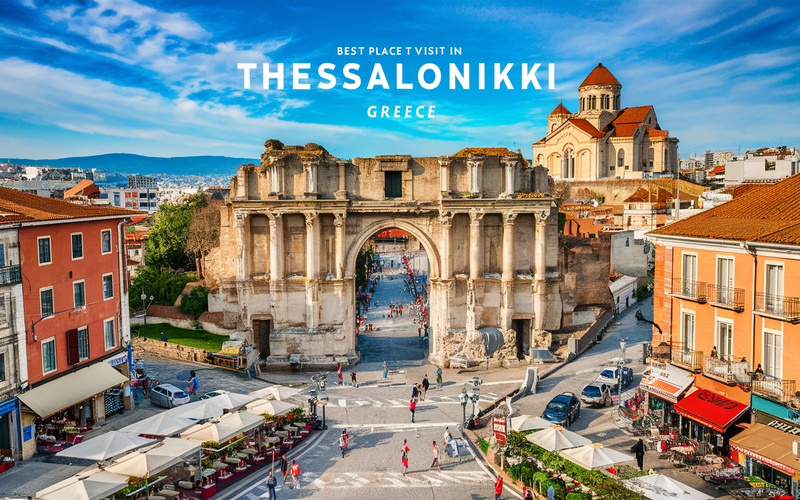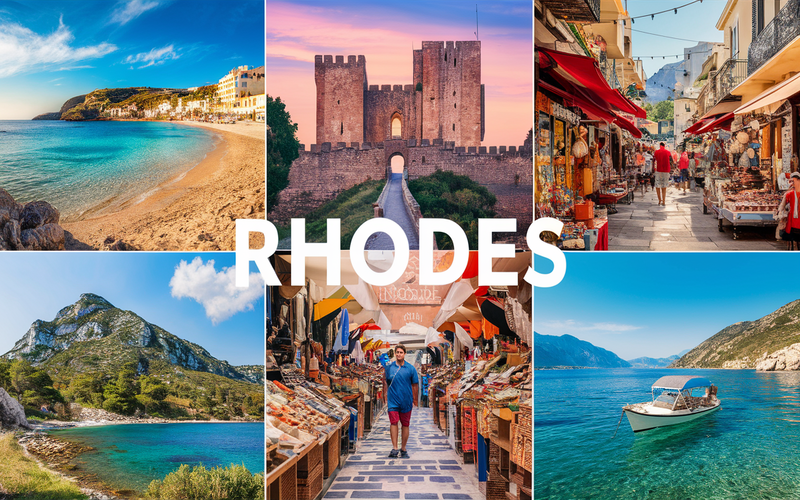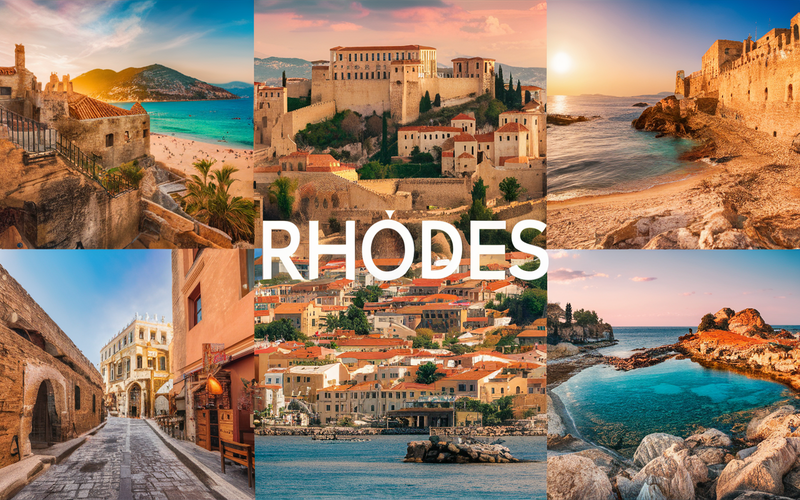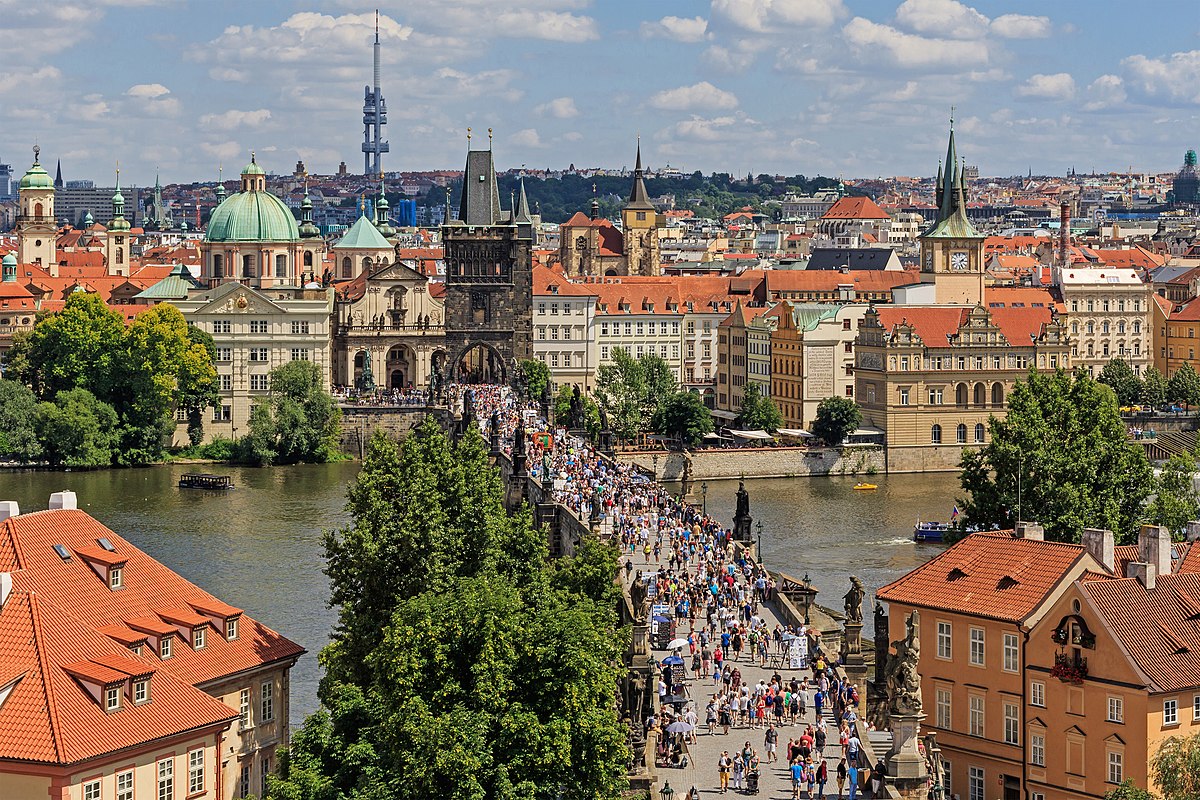Plan Your Travel To Greece
Greece Travel Essentials
Ideal Duration: 5 - 10 Days
Currency: Euro (EUR)
Best Time: March - April (Spring) and September - October (Autumn) Read More
Budget: Moderate
"Sun, Sea, and Soul"
Greece Tourism
Greece is a Mediterranean paradise known for its colourful culture, beautiful islands, and rich history. The capital city of Athens is home to famous historical landmarks, including the Parthenon and the Acropolis. Discover the stunning beaches of Mykonos, the ancient remains of Delphi, and the enchanted white-washed hamlet of Santorini. Greece has a wide variety of scenery, including verdant olive orchards, craggy mountains, and pristine lakes. Enjoy delicious Greek food, such as moussaka and souvlaki. Greece invites visitors to enjoy its history, scenic beauty, and the charm of an island living in the centre of the Mediterranean with friendly hospitality, exciting festivals, and a rich cultural heritage.
Must Know Before You Travel to Greece
- Currency: The Euro (EUR) is the official currency.
- Language: Greek is the primary language, but English is widely spoken in tourist areas.
- Weather: Greece has a Mediterranean climate with hot, dry summers and mild winters.
- Transportation: Efficient public transport, including buses and ferries, connects major cities and islands.
- Cuisine: Try local specialties like moussaka, souvlaki, and baklava.
- Culture: Greeks are known for their hospitality, and it's customary to greet them with a kiss on both cheeks.
- Respect: Dress modestly when visiting religious sites, and avoid discussing politics or sensitive topics.
- Shopping:Explore local markets for souvenirs like olive oil, herbs, and handmade crafts. Bargaining is not common in shops but may be acceptable in markets.
- Beach Etiquette: Follow beach etiquette by using a towel on sunbeds, avoiding loud music, and cleaning up after yourself. Nude or topless sunbathing may be accepted on some beaches.
- Respect for Monuments: Show respect when visiting historical sites. Follow guidelines, avoid touching artifacts, and be mindful of the cultural significance of each site.
- Blue Flag Beaches: Look for Blue Flag beaches, which indicate high environmental and safety standards. These beaches are ideal for a clean and safe swimming experience.
- Water Safety: Be cautious of strong sea currents and follow lifeguard instructions. Greece's beaches are generally safe, but it's essential to prioritize water safety.
- Explore Local Villages: Venture into traditional villages to experience Greek hospitality. Enjoy local food, meet residents, and participate in cultural activities.
- Outdoor Activities: Explore outdoor activities like hiking in the Samaria Gorge, sailing in the Cyclades, or relaxing on the beaches of Zakynthos. Greece offers diverse landscapes.
- Nightlife: Greek nightlife is vibrant. Enjoy evenings in tavernas, cafes, or beach bars. Cities like Athens and Thessaloniki have lively night scenes.
Tourist Places to Visit In Greece
Santorini

Athens
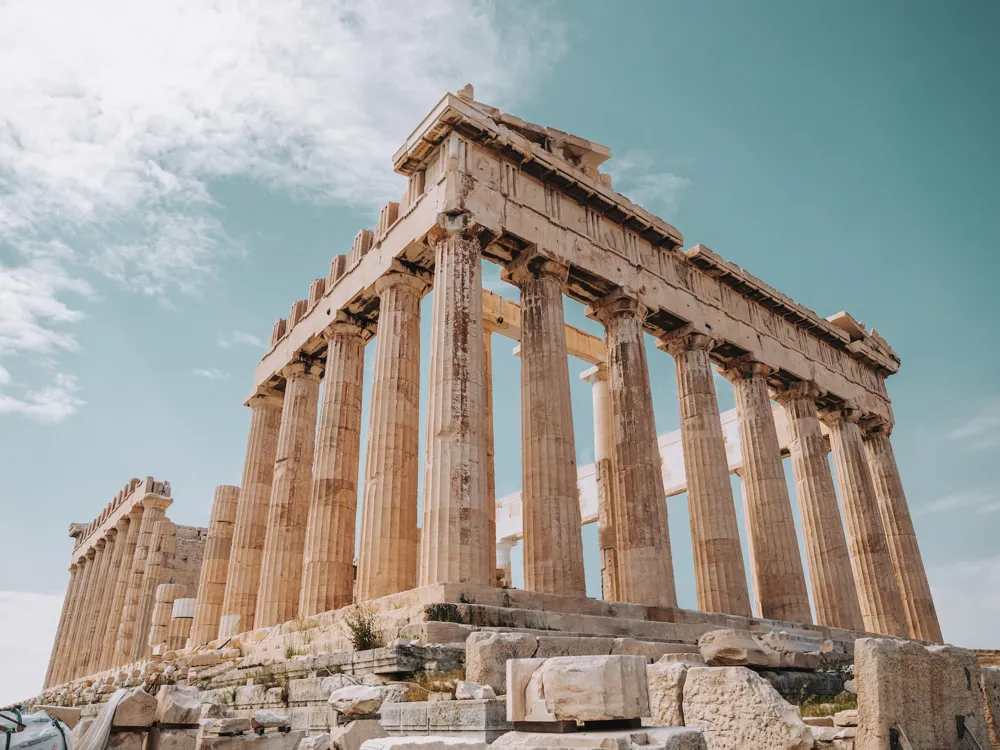
Crete
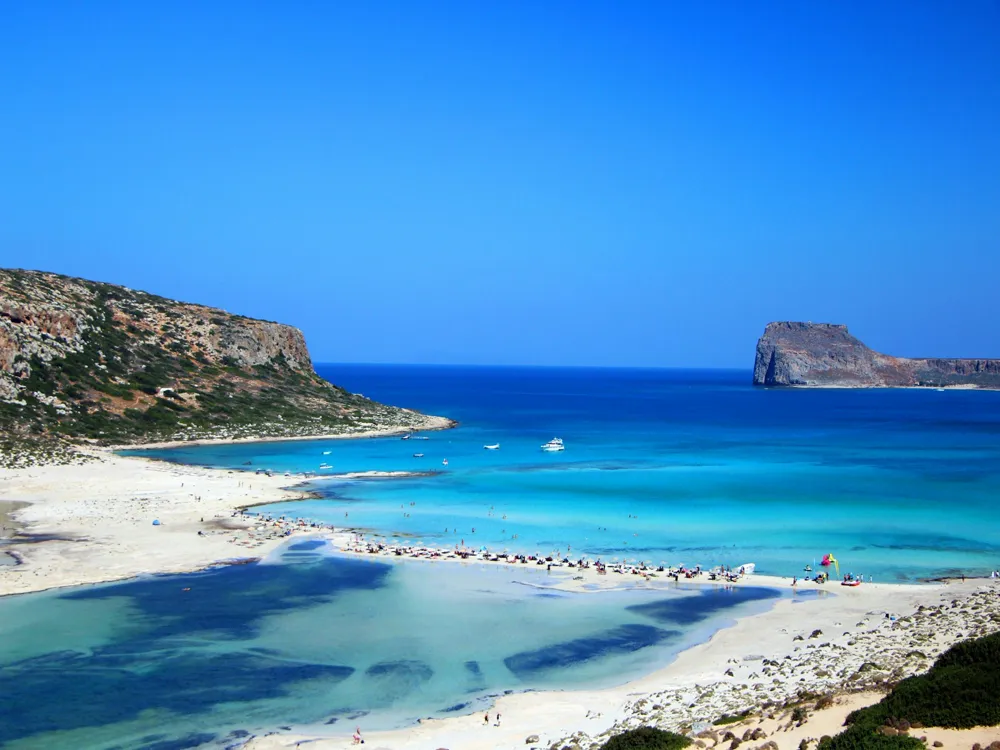
Naxos
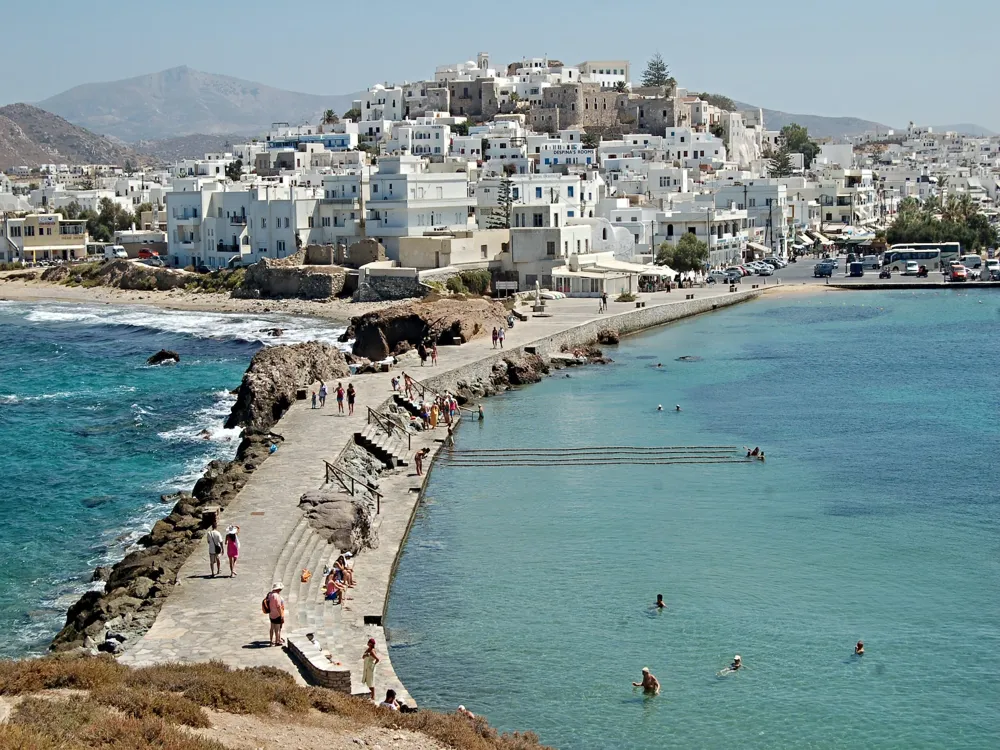
Paros
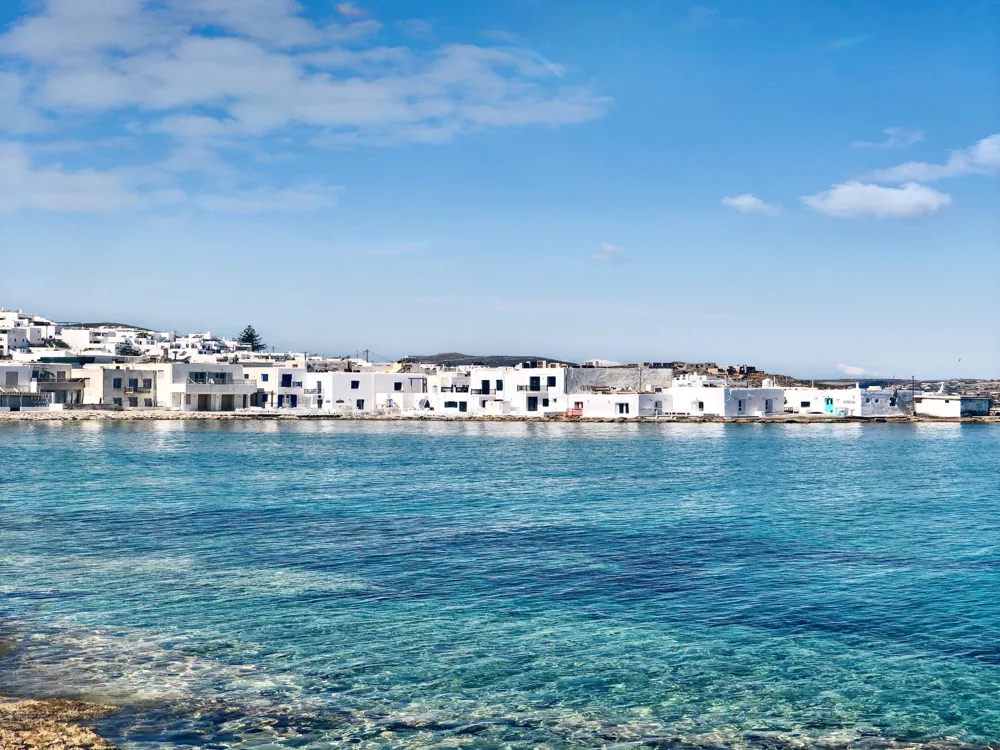
Greece Travel Packages
Compare quotes from upto 3 travel agents for free
View All Packages For Greece
More on Greece Travel
All collections about Greece
Best time to visit Greece
Greece's greatest seasons are spring (March to May) and fall (September to November), when the country has very nice weather and a profusion of gorgeous wildflowers. Both the summer heat and the wet winters are something you can avoid. It's even more advantageous because this is the time of year for most events. The greatest time to visit the beaches is in the spring, but for a chillier experience, tourists may visit the highlands in October. It's a great time to explore sans the throngs of tourists because there aren't as many people about as there are in the summer. Hiking, discovering archaeological sites, and taking part in local festivities are all best done in the springtime. It could still be a little too cold to swim in.The summer months of June through August are the busiest travel times due to the warm, bright weather. Although coastal regions might be quite hot, they are ideal for beach enthusiasts. Swimming, water activities, and taking advantage of the exciting nightlife are all finest at this period. For most travel locations, this is the busiest time of year.For most tourist sites, winter (December to February) is the off-season. While it could be nice in the south, it might be colder in the north and in the highlands. It is ideal for exploring history and culture, going to museums, and taking in a more sedate and genuine experience. In hilly areas, it's also perfect for skiing. There are wildflowers blooming everywhere. Both the summer heat and the wet winters are something you can avoid. It's even more advantageous because this is the time of year for most events. The greatest time to visit the beaches is in the spring, but for a chillier experience, tourists may visit the highlands in October. It's a great time to explore sans the throngs of tourists because there aren't as many people about as there are in the summer. Hiking, discovering archaeological sites, and taking part in local festivities are all best done in the springtime. It could still be a little too cold to swim in.June through August is the busiest travel season due to the warm, bright weather. Although coastal regions might be quite hot, they are ideal for beach enthusiasts. Swimming, water activities, and taking advantage of the exciting nightlife are all finest at this period. For most travel locations, this is the busiest time of year.For most tourist sites, winter (December to February) is the off-season. While it could be nice in the south, it might be colder in the north and in the highlands. It is ideal for exploring history and culture, going to museums, and taking in a more sedate and genuine experience. In hilly areas, it's also perfect for skiing.
Top Stories about Greece Tourism
Read More on Greece Travel
Exchanging money in Greece:
It is vital to understand the procedure of exchanging currencies while travelling to Greece. The Euro (EUR) is the accepted form of payment, and ATMs, banks, and exchange offices may all handle currency exchanges. While most banks provide reasonable rates, others impose a commission. ATMs are extensively distributed and offer quick access to cash. Although most places take credit cards, it's a good idea to have extra cash on hand for smaller businesses. To prevent frauds, use caution while exchanging money with street sellers. All things considered, Greece's financial system is dependable, which makes handling your money while travelling simple.
Nightlife in Greece:
Greece has a thriving and varied nightlife. There is something for everyone, from the energetic beach parties on the islands to the busy pubs and clubs of Athens. Mykonos and Ios are well-known for their all-night beach parties, while Athens offers a blend of modern nightclubs and classic tavernas. Thessaloniki offers a diverse selection of clubs and music venues for an equally lively nightlife. Savor a beverage by the sea, dance to international music, or take in live Greek music. Night owls will have an amazing time at this place since the Greeks know how to party.
Shopping in Greece:
It is vital to understand the procedure of exchanging currencies while travelling to Greece. The Euro (EUR) is the accepted form of payment, and ATMs, banks, and exchange offices may all handle currency exchanges. While most banks provide reasonable rates, others impose a commission. ATMs are extensively distributed and offer quick access to cash. Although most places take credit cards, it's a good idea to have extra cash on hand for smaller businesses. To prevent frauds, use caution while exchanging money with street sellers. All things considered, Greece's financial system is dependable, which makes handling your money while travelling simple.
Festivals in Greece:
Greece is a country full with festivals, held all year long to celebrate its rich history and culture. Easter is the most well-known, with its feasts and illuminated processions. The Athens and Epidaurus Festival presents performances by artists from antiquity and now in breathtaking locations. Dramatic performances honor the deity of wine and theater during the Dionysia Festival. The Assumption of the Virgin Mary is observed in August and is marked with community customs and religious processions. You may experience distinctive local celebrations on the islands, such as the Mykonos Tinos Regatta and the Patras Carnival. These occasions provide an insight into the rich customs and lively spirit of Greece.
Hygiene in Greece:
Greece upholds strict standards for sanitation and hygienic practices, and most places have safe tap water. It is traditional to wash your hands both before and after eating. There are plenty of public facilities, but it's a good idea to bring tissues or hand sanitizer, particularly in more isolated areas. The nation has put in place a number of safety precautions in reaction to the COVID-19 epidemic, including as mask use and social separation in crowded settings. During your stay, it's crucial to abide by any special rules or laws that may be in effect. In general, Greece prioritises cleanliness and hygiene for the health of both locals and visitors.
Tips for visiting Greece:
- When traveling to Greece, keep a few tips in mind. Embrace the local customs by greeting with a warm "Yassas" and showing respect for traditions and historical sites.
- Plan your itinerary to explore both the mainland and islands for a diverse experience.
- Be mindful of the siesta hours, when many businesses close in the afternoon.
- Tipping is appreciated, usually around 10% in restaurants.
- Greece's cuisine is a highlight, so savor traditional dishes like moussaka and souvlaki. Lastly, stay hydrated and wear sunscreen, as the Mediterranean sun can be intense. With these tips, your Greek adventure will be memorable and enjoyable.
Foods of Greece:
For those who love eating, Greek cuisine is a delicious culinary adventure. Savor traditional fare like souvlaki, which is grilled and skewered meat served with pita, and moussaka, a filling casserole of eggplant and pork. Savor freshly made Greek salads topped with feta cheese and olives and dressed with olive oil. Grilled octopus and tender grilled sardines are great for seafood lovers. Enjoy the flavors of spanakopita, a spinach and feta pastry, and tzatziki, a yogurt-based dip with cucumber and garlic. Remember to savor sweet treats like loukoumades (doughnuts drenched in honey) and baklava. Enjoy your meals with regional wines or the anise-flavored Greek liquor, ouzo. Greek food is delicious and a reflection of the nation's rich culinary history.
Photos of Greece
All Country Photos Greece
Popular Questions And Answers on Greece
What are the must-visit places in Greece?
Some of the must-visit places in Greece include Athens, Santorini, Mykonos, Delphi, Meteora, and the historic city of Rhodes.
What's the best time to visit Greece?
The best time to visit Greece is during the spring (April to June) and fall (September to October) when the weather is pleasant, and tourist crowds are thinner.
What are the top Greek islands to explore?
Popular Greek islands to explore include Santorini, Mykonos, Crete, Rhodes, Corfu, and Zakynthos, each offering unique experiences.
How is the local cuisine in Greece?
Greek cuisine is known for dishes like moussaka, souvlaki, tzatziki, and fresh seafood. Don't forget to try Greek salads and baklava as well.
Is it safe to drink tap water in Greece?
In most Greek cities and tourist areas, tap water is safe to drink. However, in some smaller islands or remote regions, it's best to stick to bottled water.
What is the currency used in Greece?
The currency used in Greece is the Euro (EUR).
What are the historical attractions in Athens?
Athens is rich in historical sites, including the Acropolis, Parthenon, Ancient Agora, and the National Archaeological Museum.
What is the dress code in Greek churches and monasteries?
When visiting Greek religious sites, it's essential to dress modestly, covering your shoulders and knees. Many places provide shawls or wraps for visitors.
How can I get around Greece?
You can get around Greece by using a combination of public transportation, including buses and ferries, and rental cars for exploring the islands and remote areas.
Are there any local customs or traditions to be aware of when visiting Greece?
Greeks are known for their warm hospitality. It's customary to greet with a friendly

